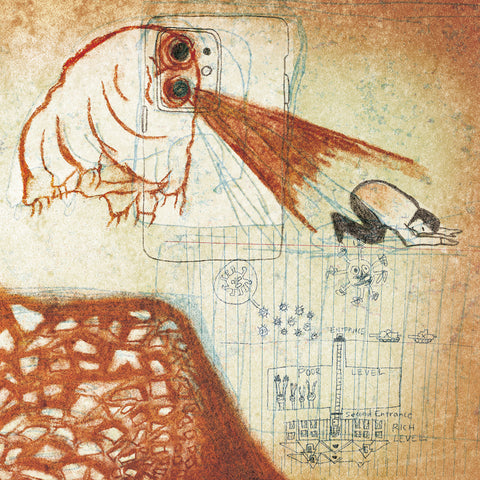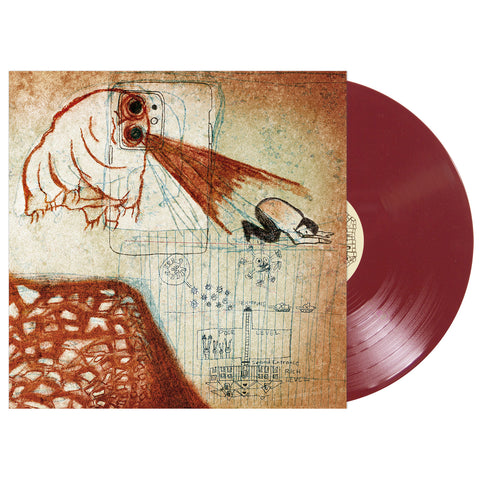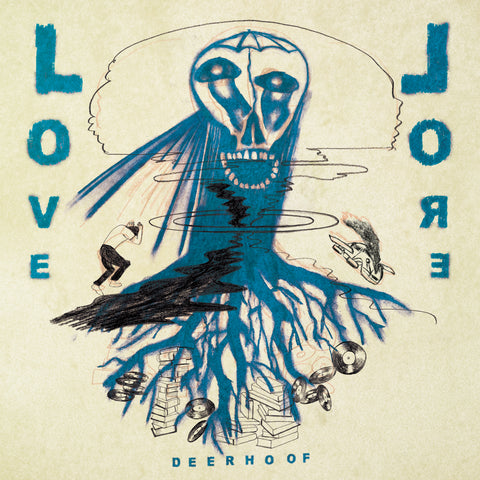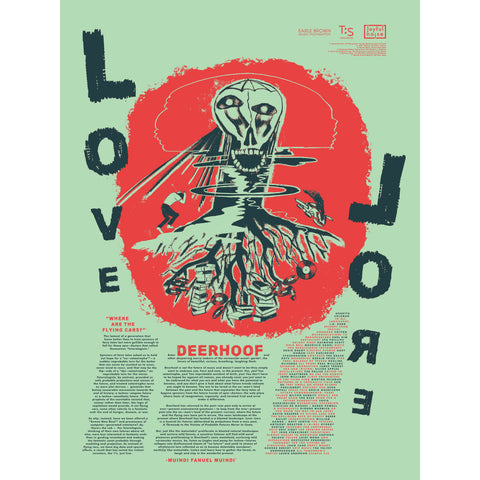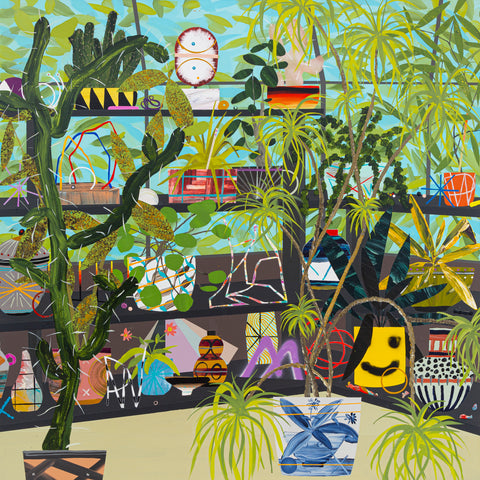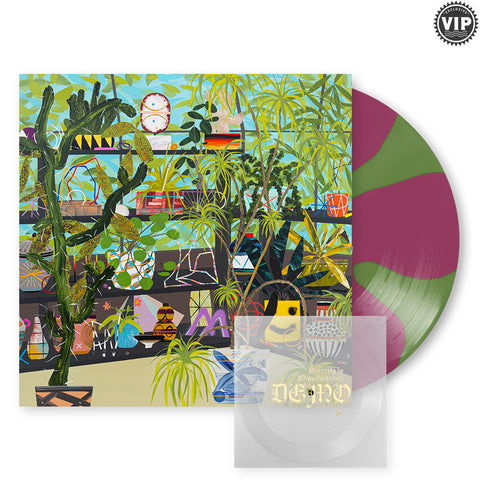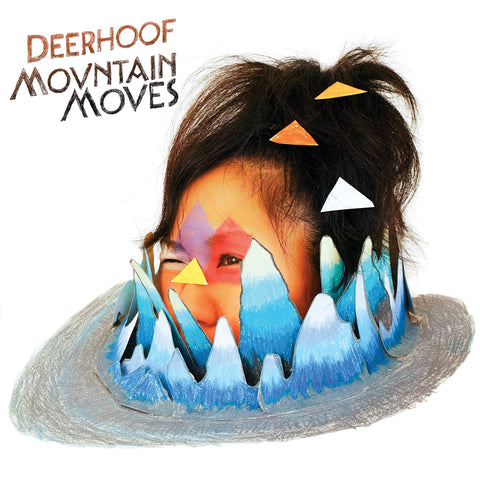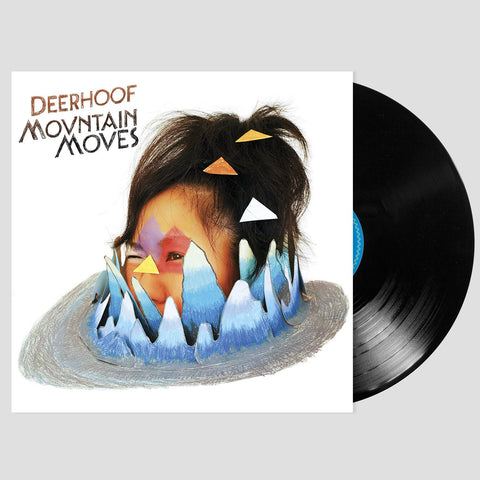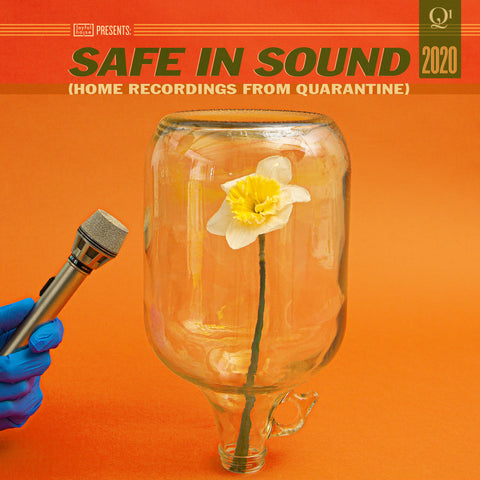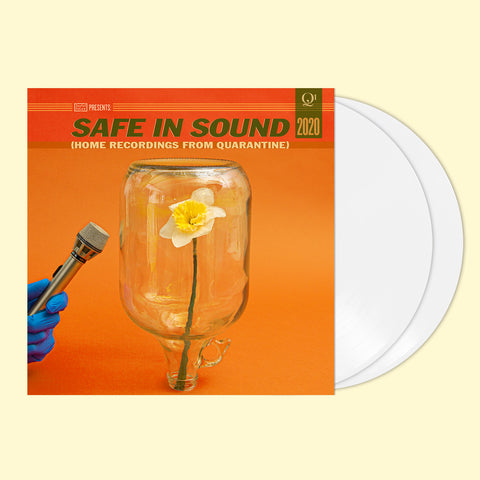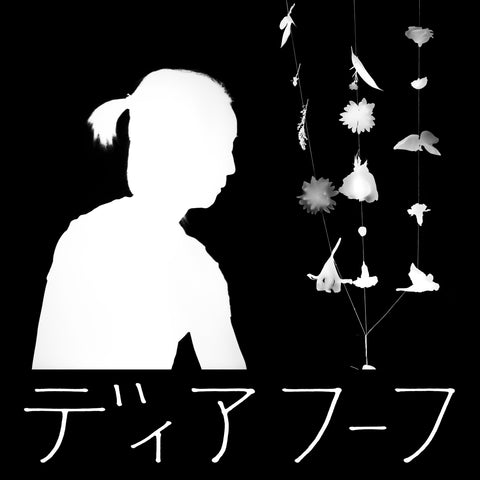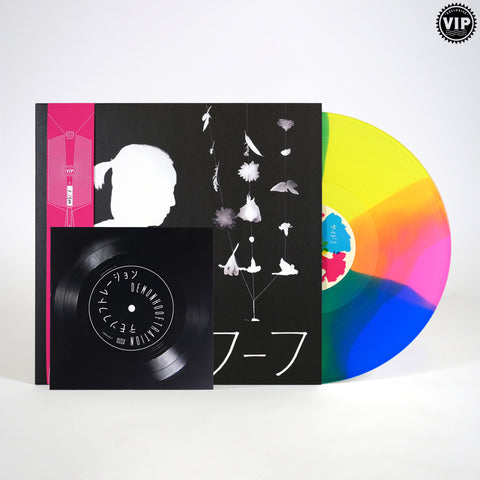$ 27.00 USD
SOLD OUT
1. The Perfect Me
2. Choco Fight
3. +81
4. Believe E.S.P.
5. The Galaxist
6. Makko Shobu
7. Matchbook Seeks Maniac
8. Cast Off Crown
9. Kidz Are So Small
10. Whither The Invisible Birds?
11. Look Away
"Friend Opportunities" Bonus Flexi Disc:
1. Perfect Me (This is Lorelei)
2. Perfect Kidz (Body Meat Remix)
Credits
Written and played by Satomi Matsuzaki, John Dieterich, and Greg Saunier.
Recorded by Deerhoof at home, by Jay and Ian Pellicci at Tiny Telephone, Eli Crews at New, Improved Recording and by Michael Zelner at the Castro Theater in San Francisco.
Mixed by Deerhoof and Ian Pellicci.
Originally released January 23, 2007 on Kill Rock Stars, ATP Recordings & 5 Rue Christine
Deerhoof's landmark 9th album, reissued on a new (much better) vinyl pressing, with gatefold jacket + printed innersleeve featuring David Shrigley's multiple album covers created for the initial CD release.
By 2007 Deerhoof had firmly established themselves as one of the most forward-thinking, fun-having, and expectations-exploding indie rock bands around. 16 years later, Friend Opportunity remains a poignant feat of reinvention. Originally released January 23, 2007 on Kill Rock Stars, Friend Opportunity was written by the trio of Satomi Matsuzaki, John Dieterich, and Greg Saunier, following the departure of guitarist Chris Cohen. The instruments were mainly self-recorded in the band members' Bay Area bedrooms, with most of the vocals and some additional instruments recorded at San Francisco’s Tiny Telephone by Jay and Ian Pellicci. The final touch was the addition of organs from Oakland’s New, Improved Recording keyboard collection, recorded by Eli Crews.
Music historian Michael Azerrad's projections of the album's indelible legacy in his original bio still hold up almost 20 years later:
'Later on, in the sparkly white jumpsuit days, Elvis would reach a peak moment when the music moved him so deeply, lifted him to such great heights, that there was only one thing to do: the Inverted Claw. When music makes you do that, it's a truly awesome feeling. The Inverted Claw is what Deerhoof is all about. Their exultant music draws you into the moment, and there you rejoice.
On the transcendent Friend Opportunity, the music constantly surprises: songs like the "Perfect Me" have three or four sections of heart-stopping epiphanies of the sublime; "Matchbook Seeks Maniac" pulls a "99 Luftballoons" breakdown move in the middle, rocks a Brahms interval in the pop-narcotic chorus, and the Beach Boys and the Who are all over the mix — it's one of the most glorious things you’ll ever hear.
On previous albums, one of Deerhoof's main weapons was negative space – the stunning silences between beats and chords hit harder than any clang and clash of guitars and cymbals. Deerhoof were like painters who'd leave bare patches of canvas to highlight their strokes; now they're inclined to fill in every square inch, inviting us to revel in every brilliant corner. And songs like "Perfect Me," "Believe in E.S.P." and "Choco Fight" are vastly more groove-oriented — and yeah, sexy — than anything they've ever done. It's all integrated into juxtapositions that ought to be jarring but just come out astonishing. "Believe E.S.P." opens with Deerhoof's take on get-down funky slinkopation but the next passage sounds like something out of Palestrina; like so many of these songs, it's a scenic drive that flows from one astonishing vista to the next, from wide, shimmering deserts to foggy canyons to staggering, snow-peaked mountaintops.
Deerhoof is not one of those quotational, ironic, postmodern bands that pervaded indie rock for so long. Maybe that's because they're so clearly in love with the power of music, and are such incredible musicians and composers. Yeah, I said "composers" — there's a symphonic conception at work here, entire worlds within chords, genius hooks that may or may not swing by again, a programmatic, narrative flow that takes us from one place and drops us off in another, like an exhilarating abduction. As Mike Watt once said of his band the Minutemen, Deerhoof doesn't write songs, they write rivers. They're still episodic — but those episodes flow by more fluidly, less concatenations of ideas than inspired blurts that came out fully formed, and strong at broken places. It's got its own logic, as if they dream this stuff and somehow remember what they dreamt and forge it into music before it evaporates from their minds. And the numinous center of it all is "Whither the Invisible," with main singer Satomi Matsuzaki as a child-like voice wandering in an enchanted Miyazaki forest.
Where on earth does this stuff come from? There's the towering, odd-metered guitar riffarama of Chavez, the heavy metal thunder of Stravinsky, the damaged curlicues of Gastr del Sol, the klang und schtomp of Led Zeppelin, Japan's illustrious line of breathtakingly innovative female-dominated bands like Ex-Girl and Melt Banana. And now there are those man-machine beatbox rhythms, with titanic drummer Greg Saunier outpacing the technology like a John Henry with two wooden dowels in his hands instead of a sledgehammer. Sometimes they recall the Who — like "Underture" from Tommy or the magnificent live version of "A Quick One," a rock band doing the work of an orchestra, compelling reveries alternating with powerful rushes of sinuous melody, lyrical power-plays and Inverted Claws that clutch overwhelming joy.
But there's another important source: For at least 20 years, hip-hop has made the most outlandish, experimental music that pop has ever seen. Why can't rock music do the same thing, in its own way? So while Friend Opportunity does tangentially cite hip-hop (and various eras of rock at its most adventurous), it mostly just applies the same mindset — what if we just let our imagination run free?
Friend Opportunity is a feat of reinvention that could only come from artists willing to rethink everything. "It's like being a kid again," Saunier once told Pitchfork, "because that's what kids do all the time. Every day they're learning new things that they didn't know that they could do." Man, talk about sonic youth — Deerhoof's springs eternal.'










